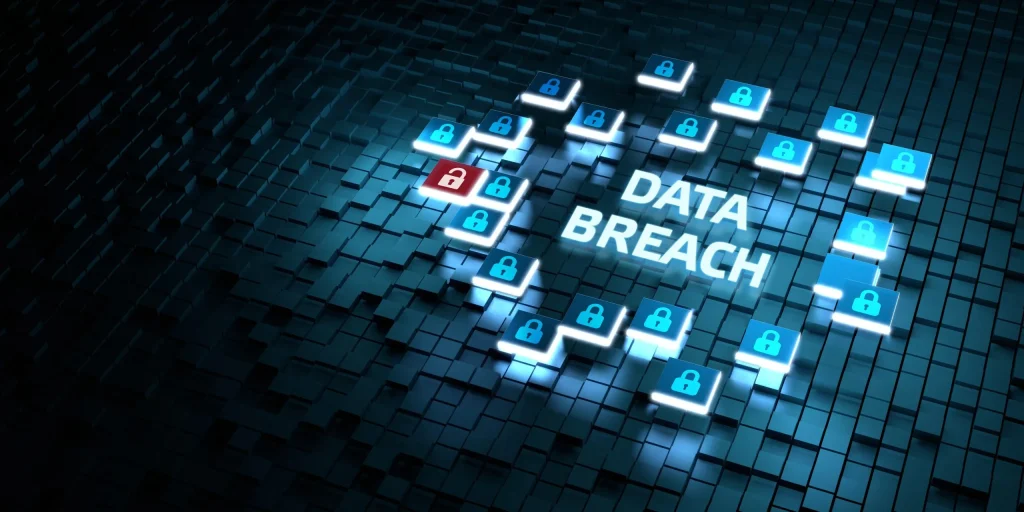In January 2025, Texas experienced a significant increase in data breaches, compromising the personal information of many residents. Over 60 breaches were reported in the state, affecting various sectors, including healthcare, finance, and government services. This surge highlights the urgent need for individuals to take proactive steps to protect their personal data.
Understanding Data Breaches
A data breach occurs when unauthorized individuals gain access to confidential information, such as personal identification details, financial records, or health information. These breaches can lead to identity theft, financial loss, and other serious consequences. Cybercriminals use various methods to exploit vulnerabilities, including phishing attacks, malware, and social engineering tactics to access sensitive data.
Data breaches not only impact individuals but also organizations, leading to financial losses, reputational damage, and regulatory fines. The increasing frequency of cyberattacks underscores the importance of robust cybersecurity measures for both businesses and individuals.
Recent Data Breaches in Texas
In January 2025, Texas saw over 60 data breaches, with significant incidents reported in the following areas:
Healthcare Sector
The Texas Health and Human Services Commission (HHSC) faced a major breach when seven employees were found to have improperly accessed and, in some cases, stolen private information of Texans seeking public assistance, including Medicaid and food stamps. This incident is believed to be the largest data breach in the agency’s history. The breach raises concerns about internal security measures within government agencies and highlights the need for stricter access controls and employee monitoring.
Utility Services
CenterPoint Energy, a Texas utility firm, is investigating reports of customer data being leaked on a cybercriminal forum. The data was allegedly taken during a 2023 breach, highlighting the long-term risks associated with data breaches. Customers of CenterPoint Energy are advised to remain vigilant and monitor their accounts for any suspicious activity.
Financial Sector
Several banks and credit unions in Texas have reported unauthorized access to customer accounts due to phishing scams and credential-stuffing attacks. Cybercriminals use stolen credentials from previous breaches to gain access to financial accounts, emphasizing the importance of using unique passwords for different accounts.
Protecting Your Personal Information
Given the rise in data breaches, it is crucial for individuals to take steps to safeguard their personal information. Below are some essential security practices to help protect your data:
1. Monitor Your Credit
Regularly check your credit reports for any unauthorized activity. You can obtain free credit reports annually from the major credit bureaus: Equifax, Experian, and TransUnion. If you notice any suspicious activity, report it immediately.
2. Use Strong, Unique Passwords
Avoid using the same password across multiple accounts. Create strong, unique passwords that include a mix of uppercase and lowercase letters, numbers, and special characters. Consider using a password manager to store and manage your passwords securely.
3. Enable Multi-Factor Authentication (MFA)
Whenever possible, enable MFA on your accounts. This adds an extra layer of security by requiring additional verification steps beyond just a password. MFA options include SMS codes, authentication apps, or biometric verification.
4. Be Cautious with Public Wi-Fi
Avoid accessing sensitive information over public Wi-Fi networks, as they can be less secure and more susceptible to cyberattacks. If you must use public Wi-Fi, consider using a Virtual Private Network (VPN) to encrypt your internet connection.
5. Keep Software Updated
Regularly update your devices and software to ensure they have the latest security patches. Cybercriminals often exploit vulnerabilities in outdated software to gain access to systems.
6. Educate Yourself on Phishing Scams
Be aware of phishing attempts, where attackers try to trick you into revealing personal information. Common signs of phishing emails include urgent language, unfamiliar senders, and suspicious links. Always verify the source before clicking on links or providing sensitive information.
7. Consider Identity Theft Protection Services
These services can monitor your personal information and alert you to potential threats. Some services also offer insurance and assistance in case of identity theft.
8. Freeze Your Credit If Necessary
If you suspect your information has been compromised, consider placing a credit freeze with the major credit bureaus. This prevents new accounts from being opened in your name without your authorization.
9. Secure Your Devices
Use security software, firewalls, and encryption to protect your devices from malware and cyber threats. Be cautious when downloading files or clicking on links from unknown sources.
10. Review Account Statements Regularly
Regularly review your bank and credit card statements for unauthorized transactions. If you notice any suspicious activity, report it to your financial institution immediately.
The Role of Businesses in Data Protection
While individuals must take precautions, businesses and organizations also have a responsibility to protect customer data. Companies should implement strong security measures, such as:
- Conducting regular security audits and risk assessments
- Encrypting sensitive data
- Implementing strict access controls for employees
- Educating staff on cybersecurity best practices
- Responding quickly to data breaches and notifying affected individuals
Conclusion
The recent surge in data breaches in Texas serves as a stark reminder of the importance of protecting personal information. With over 60 breaches reported in January 2025 alone, individuals must take proactive measures to secure their data. By staying vigilant and implementing the security practices outlined above, Texans can reduce the risk of falling victim to identity theft and other cybercrimes.
As cyber threats continue to evolve, both individuals and businesses must remain proactive in strengthening their cybersecurity defenses. Awareness, education, and proper security measures are the key to mitigating the risks associated with data breaches.
Disclaimer – Our editorial team has thoroughly fact-checked this article to ensure its accuracy and eliminate any potential misinformation. We are dedicated to upholding the highest standards of integrity in our content.





More Stories
January 2025 Sees Surge in Data Breaches Across Texas
January 2025 Sees Surge in Data Breaches Across Texas
January 2025 Sees Surge in Data Breaches Across Texas